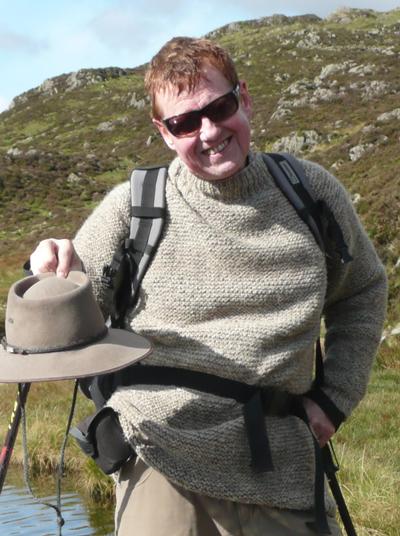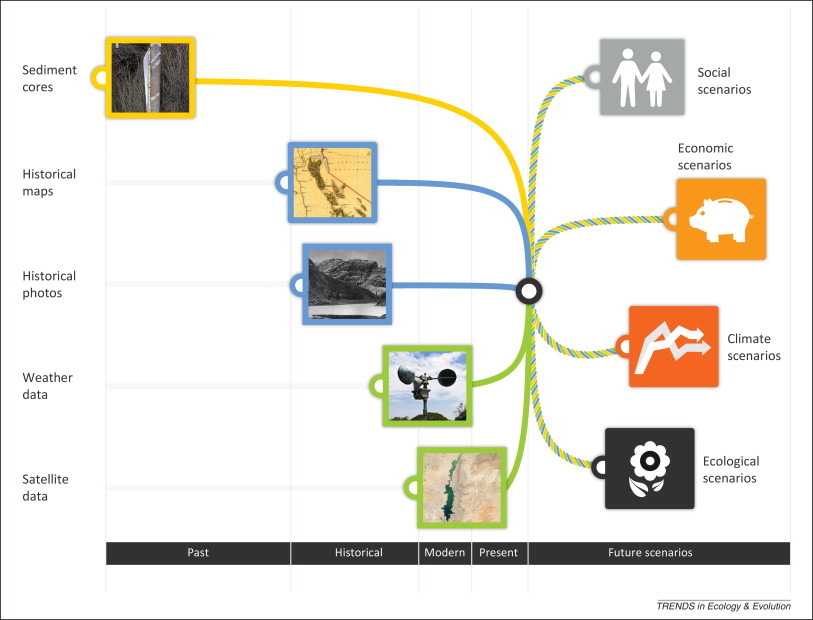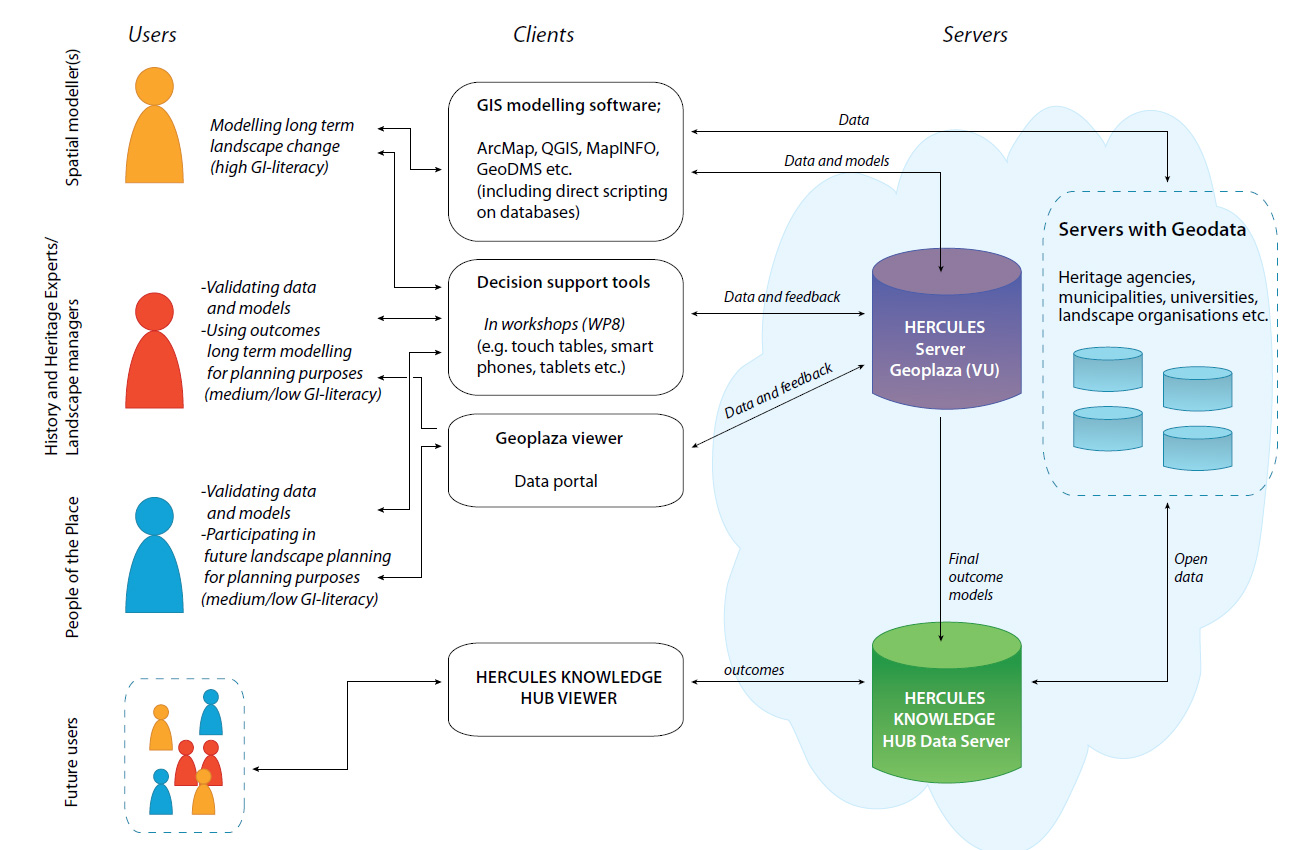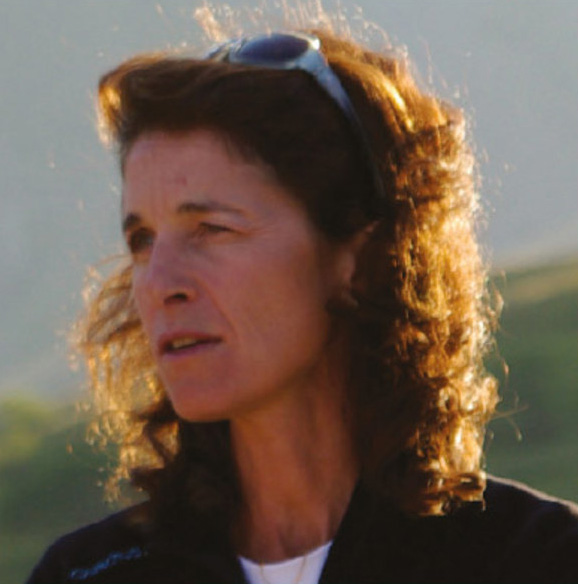
|
|
|
We'll have high quality keynote speakers: check what they're going to say!We are particularly grateful to our collegaues who accepted to give keynote lectures that will structurate the workshop's debates. Who is John? John is a palaeoenvironmentalist with an interest in using lake sediment records to help understand the complex dynamics of modern social-ecological systems. He helped set up the PAGES Focus 4 ‘Regional Integration’ theme in order to coordinate the interdisciplinary integration of palaeoenvironmental records with other biophysical and socio-economic records in regional studies. Understanding complex dynamics is key to the successful and sustainable management of ecosystems, and the resources and services they provide for people. The background to the theme is provided in the publication: Dearing, J.A., Acma, B., Bub, S., Chambers, F.M., Chen, X., Cooper, J., Crook, D., Dong, X.H., Dotterweich, M., Edwards, M.E., Foster, T.H., Gaillard, M.J., Galop, D., Gell, P., Jones, R.T., Anupama, K., Langdon, P.G., Mazier, F., McLean, C.E., Nunes, L.H., Sukumar, R., Suryaprakash, I., Umer, M., Yang, X.D., Wang, R. and Zhang, K. (2015) Social-ecological systems in the Anthropocene: the need for integrating social and biophysical records at regional scales. The Anthropocene Review, 1-27. (doi:10.1177/2053019615579128).
What will you talk about John? “Over the past decade, I’ve worked a great deal with colleagues on sites in China. So I’m going to review the ways in which ‘integration’ of Chinese records has created insight into the regional complex dynamics. The examples will include observing the drivers and mechanisms of local tipping points in lake trophic status, setting safe operating services for rural agriculture, and observing the growth of critical instability at a regional scale. I’ll show the data for each case study but also highlight the conceptual developments and statistical techniques that we’ve used to tease out the complex system behaviours.” Whos is Lindsey? Lindsey is an ecologist using palaeoecological techniques to study ecosystem dynamics at decadal to millennial timescales, and in the application of this information in ecosystem management and biodiversity conservation. She is especially interested in how climate change, land-use and disturbance interact to drive ecosystem dynamics at a range of spatial and temporal scales, and what this means for the delivery of ecosystem services and the sustainability of socio-ecological systems. What will you talk us about, Lindsey? "I'm convinced global environmental challenges can only be addressed by multifaceted approaches that integrate biodiversity conservation with sustainability targets. While multi-disciplinary research is helping to define a safe operating space for humanity, as yet there is relatively little use of palaeoecological data in defining how close we are to environmental and ecological tipping points. In this keynote talk, I will argue that a past-present-future perspective is vital to developing realistic future scenarios, and in informing management options that maintain and restore ecological function, and that sustain biodiversity and ecosystem services." This sketch shows how different environmental proxies combine to reconstruct climate and ecosystem dynamics through time. Combining different sources of information, is essential to gain a comprehensive understanding of past ecosystem dynamics and human interactions, and to engender the development of appropriate and sensitive modelling tools for future scenarios (From Gillson and Marchant, 2014, Trends in Ecology and Evolution). Who is Dan? Dan's research is focussed on the environmental history of the southwest Pacific region, but particularly mainland Southeast Asia (Thailand, Cambodia). Dan applies expertise in palaeo-botany and sedimentology to document the response of tropical ecosystems to climatic variability and human activities over long periods of time. The aim of this research is to reveal the complex mechanistic interaction between the biosphere (including humans) and the atmosphere in order to better understand the Earth System. A key focus of Dan's work is the response of human communities to environmental change. For well over a decade Dan has studied the environmental history of medieval cities in Cambodia, particularly the world-famous city of Angkor. What will you talk us about, Dan? " I will provide an example of a socio-ecological system that was iteratively and deliberately constructed into a state of precariousness over several hundred years. The medieval city of Angkor, in present day Cambodia, was the world's largest city by the 12th century C.E., and was characterized by a vast and intricate water management system. That infrastructural network became critically inter-dependent and, when perturbed by extreme monsoon variability during 14th and 15th centuries, precipitated a system collapse and the abandonment of the city. Angkor represents an important example of the unexpected consequences of climatic variability for a constructed landscape whose basin of attraction was rapidly shallowing." Whos is Kim? Kim has a background in Archeology with a PhD in Neolithic land use (2009) and was researcher at Uppsala University, Sweden, 2011-2015. As such she focused on long-term land use, site performance and GIS, for example within the FP7-EU project Sustainable Futures for Europe's Heritage in Cultural Landscapes (HERCULES), where were built dynamic models raging from the withdrawing of the ice until, more or less, todays landscape. She is also active in the Integrated History and future Of People of the Earth (IHOPE) where “Past for Future” is the main object of investigation. Since December 2015 she has a position more focused on research strategy and funding collaborations in the contexts of Global Environmental Change (GEC) Research at the Swedish Secretariat for Environmental Earth System Science (SSEESS). She has close collaboration with Future Earth’s Swedish hub and is part of the Belmont Forum secretariat. This has allowed her to get an even better insight in the situation for global transdisciplinary research. She is particularly committed in trying to overcome difficulties in the collaboration between the social science/humanities and the natural science.
What will you talk us about, Kim ? "In this key note I will address this workshops questions of ‘Why, What and How to integrate?’ by demonstrate some examples of good collaborations where the researchers don’t necessarily come with an “etiquette” from the start but function more fluidly in different roles and different work packages. That is also the question I believe is important to solve before putting together a team of researchers from different disciplines; How can we get out of our comfort zones?"
I choosed the figure as it showes a flow of collaboration between different users, clients and servers as well as between different people such asdifferent reserachers, recidents and the next generation. Kolen, Jan et al. 2015. HERCULES: Studying long-term changes in Europe’s landscapes. ANALECTA PRAEHISTORICA LEIDENSIA 45. Who is Jed? Jed is an expert on the response of global vegetation to climate changes and the potential feedbacks between the Earth’s land surface and the climate system.His research encompasses the traditional disciplines of earth sciences, geography, atmospheric chemistry, meteorology, soil science, hydrology, plant ecology and physiology, and computer science. He focuses on the role of the Earth’s land surface in the climate system. By studying the behavior of the land surface, he aims to understand the potential for biophysical and biogeochemical feedbacks between land and atmosphere in the Earth system.
What will you talk us about, Jed? "The Mediterranean is a semiarid region in large part, with a marked seasonal contrast in precipitation, a wet winter season characterized by intense rainfall events and an extended summer dry season of several months with little to no rain. Model-based projections of future climate change come to a rare consensus that the Mediterranean will become even drier in the future, with potentially exacerbating consequences for populations already strained by social conflict. But the Mediterranean is also a region where societies have successfully adapted to environmental change for millennia. Within the last 2000 years alone, the Mediterranean environment is marked by periods of remarkable climatic stability, multi-centennial scale climate change, and shorter-term climate variability, including extended megadroughts, pluvials, and climatic effects of volcanic eruptions. During this period, resilient societies manipulated local vegetation, diverted and stored water resources, and built inter-regional connections among agricultural, pastoral, and urban populations to combat environmental variability and long-term climatic changes. In contrast, Mediterranean history is also marked by the rise and fall of great empires, widespread land abandonment, and periods of cultural and technological regression. The characteristics of a society that made it either resilient or vulnerable to environmental change are hotly contested, perhaps no more famously than the more than two centuries of academic debate surrounding the the decline and transformation of the Roman Empire. As such, there are few areas better provisioned for the study of complex interactions between people and their environment, over long time scales, changing social structures and times of climatic stability versus instability. To better understand the actual impact of environmental change on society, and the ability of a society to be resilient in the face of a changing environment, it is necessary to go beyond qualitative speculation. Recent developments in our ability to reconstruct paleoenvironmental change at high temporal resolution, e.g., with tree rings and other high resolution archives, combined with new techniques in numerical modeling of human-environment interactions, makes a quantitative investigation of the limits to resilience possible. In a series of ongoing studies, we are quantifying the way environmental variability and anthropogenic influence on the environment during critical periods for the Aegean kingdoms and the Roman, Byzantine, and Ottoman Empires. We hypothesize that social organization and technology play important roles in the sensitivity of a society to external environmental variability, e.g., cycles of drought. Periods with strong leadership, robust trade networks, and innovative technology allowed societies to manipulate their environment to feed populations during times of environmental stress. On the other hand, climate variability could have provided an ultimate cause for decline during times when societies were fragmented and leadership was weak. We test these hypotheses by modeling feedbacks between climate, land use, and productivity to provide local, quantitative estimates of environmental carrying capacity for humans. The model is driven by high-resolution paleoclimate reconstructions combined with historical and archaeological data synthesis on land use, societal organization, diet, technology, and trade. The model results are confronted with independent estimates of population size and dynamics, and ultimately provide evidence for the likelihood of certain trajectories of both societal and environmental change in the face of environmental variability." Who is Sandra?
Sandra's research focuses on global change impacts on ecosystems and ecosystem services. Over the years she explored different facets of global change including climate, land-use and biotic changes, including invasions and their interactive impacts on biodiversity, disturbance regimes especially fire and biogeochemistry. She became increasingly interested in the quantification of ecosystem services, and in contributing her knowledge of biophysical systems to interdisciplinary studies involving geographers, agronomers and social scientists. Her current projects seek to advance two directions: - understanding how ecosystem services contribute to the coupling of the human-environment system, both as expressions of responses to human-related forcings on ecosystems and as components of human decision-making in response to environmental change ; - exploring how ecosystems can support social climate adaptation and projecting the impacts of adaptation of land use and management to climate change (or to its perception) on ecosystems and their services is critical to policy and management strategies. Her research projects are conducted on long-term research sites where interdisciplinary teams work in close collaboration with local and regional stakeholders (transdisciplinary research). Finally, over the last few years she became increasingly involved in expert activities to support national research, environmental and agricultural policy.
What will you talk us about, Sandra? "Ecosystem services, the benefits that ecosystems provide to society, lie at the interface between social systems and ecological systems, and are either directly managed by human activities or indirectly impacted through the management for specific production and well-being goals. Temporal trajectories of ecosystem services are of particular interest in order to understand how trade-offs between different management and societal objectives unfold through history and into the future depending on social context. The quantification of the ability of ecosystems to supply services is a delicate task that requires us to use the best available ecological knowledge along with multiple data sources on environmental parameters, land use and biodiversity. In this presentation I will show some of the methods ecologists can contribute to this endeavour, and illustrate their application in recent studies of ecosystem service history and ecosystem service scenarios. I’ll end by opening the discussion on how we can further progress through the use of interdisciplinary knowledge and multi-proxy paleao data to continue developing our understanding of past, present and future dynamics of ecosystem services." |
| Online user: 1 | RSS Feed |

|






